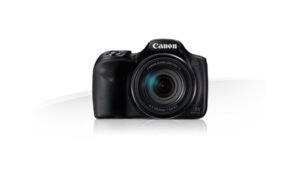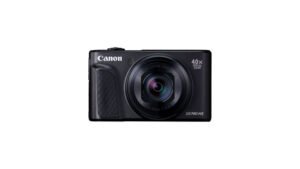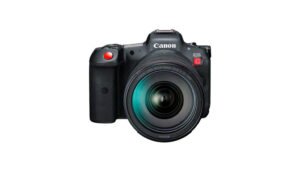The Canon R6 is classified by the same brand as non-professional, we would say that it is the closest in features to a reflex, has a grip and robustness that withstands splashes and dust. It will also allow you to enjoy action photography at incredible speeds.
The Canon R6 II is another new mirrorless camera from the brand, created with the aim of combining the best quality in terms of performance and image quality. It is a complete overhaul, incorporating better focus and greater speed in a smaller body.
CANON R6 MARK II VS CANON R6 specifications
As always we will compare, the Canon R6 II against its fiercest competitor in this case the camera that can stand up to it would be the Canon R6and now we will see how they differ.
CANON R6 | CANON R6 II | |
SENSOR | 35.9 x 23.9 mm CMOS and full frame 20.1 mpx | 35.9 x 23.9 mm CMOS 24.2 MP |
PROCESSOR | DIGIC X | DIGIC X |
FOCUS (AF) | Dual Pixel CMOS AF II Automatic 100% horizontal and 90% vertical selection with manual and large zone selection modes (up to 6072 positions) | Dual Pixel CMOS AF II |
VIEWER | Electronic OLED (5″) with 3.69 mpx and 100% coverage | 0.5-inch color OLED electronic display |
DISPLAY | LCD Clear View II (7.5 cm), approx. 1,62 mpx, touch, variable angle (170º vertical and horizontal) | 7.5 cm (3.0″) Clear View LCD II, approx. 1.62 million points |
ISO | 100 a 102400 | ISO 100-102400 auto |
SHOTS PER SECOND | Mechanical shutter: 12 fps Silent electronic shutter: 20 fps | 40 FPS |
VIDEO RESOLUTION | 4K at 60 fps | 6K UHD, Full HD |
CONNECTIVITY | WiFi, Bluetooth 4.2, FTP | WiFi and BluetooTH |
BATTERY | LP-E6NH. Approx. 510 shots | Rechargeable lithium-ion battery LP-E6NH (450-760 shots) |
MONTURA | RF (EF and EF -S with adapter) | Canon EF-EOS R mount |
WEIGHT | 680 g | 588 g |
Sensor
The Canon R6 II is a more compact alternative to the Full Frame cameras of the EOS R system. It features a good 24.2 MP sensor, combined with a large Digic X sensor. You’ll get great photo and video results. It also provides an ideal balance between speed, image quality and low-light performance. However, the Canon R6 features a resolution of 20 MP but also with a Full Frame sensor, has exceptional low-light performance and dynamic range. This sensor is combined with a DIGIC X processor, which gives you the opportunity to capture up to 240 RAW photos or over 1000 JPEGs in a single burst at 12 fps.
Approach
The R6 II is equipped with the brand’s renowned Dual Pixel CMOS AF II focusing system, which is built with the best deep learning AI technology to achieve advanced motif recognition.s. In addition, the camera will not refocus on the background if the subject moves out of the shot. It is a feature inspired by the Cinema EOS C70 brand model, with which to achieve film-like results.
On the other hand, ta Canon R6 makes use of deep learning artificial intelligence for advanced subject recognition and tracking. The recognition of eyes, faces and heads reaches maximum accuracy. In addition, it can identify cats, dogs and birds, allowing you to maintain sharp focus on fast-moving subjects, one of the most difficult aspects of home and nature photography..
Body
The Canon R6 II features a new frame, providing safety and a robust body for comfortable working. In addition, it is a light and compact camera, which makes it easy to use and carry anywhere. It is an ideal camera to be able to photograph or record at any time since you can take it everywhere.
However, the Canon R6 although it has ergonomics that make it very safe to hold, has a heavier and bulkier body than the R6 II.
Battery
The Canon R6 offers a duration of 510 shots per charge. This improves with the Canon R6 IIwhich holds 450 to 760 shots per charge,
Video
With the Canon R6 you can record in 4K at 60p, as well as sub-sampled from 7K and can be generated in HDR PQ directly on the camera or with the HDMI cable. This aspect improves with the Canon R6 II allows you to enjoy the ultimate in flexibility and image quality, you can record 6K ProRes RAW video. The additional resolution allows you to crop without losing 4K quality.
Opinion
These are two very good Canon models. Both cameras feature the same processor, the same focus quality and a great viewfinder with incredible features. The Canon R6 II stands out for its higher resolution and higher burst rate per second. It also features a more powerful battery, allowing you more shots per charge. It also has a lighter and less bulky body than the Canon R6. If you are a user looking to upgrade your older Canon model, in terms of quality and improvements in almost every aspect we recommend the Canon R6 II. However, if you are a user coming from a more basic camera, you will be able to use the R6 and be surprised with its results.






